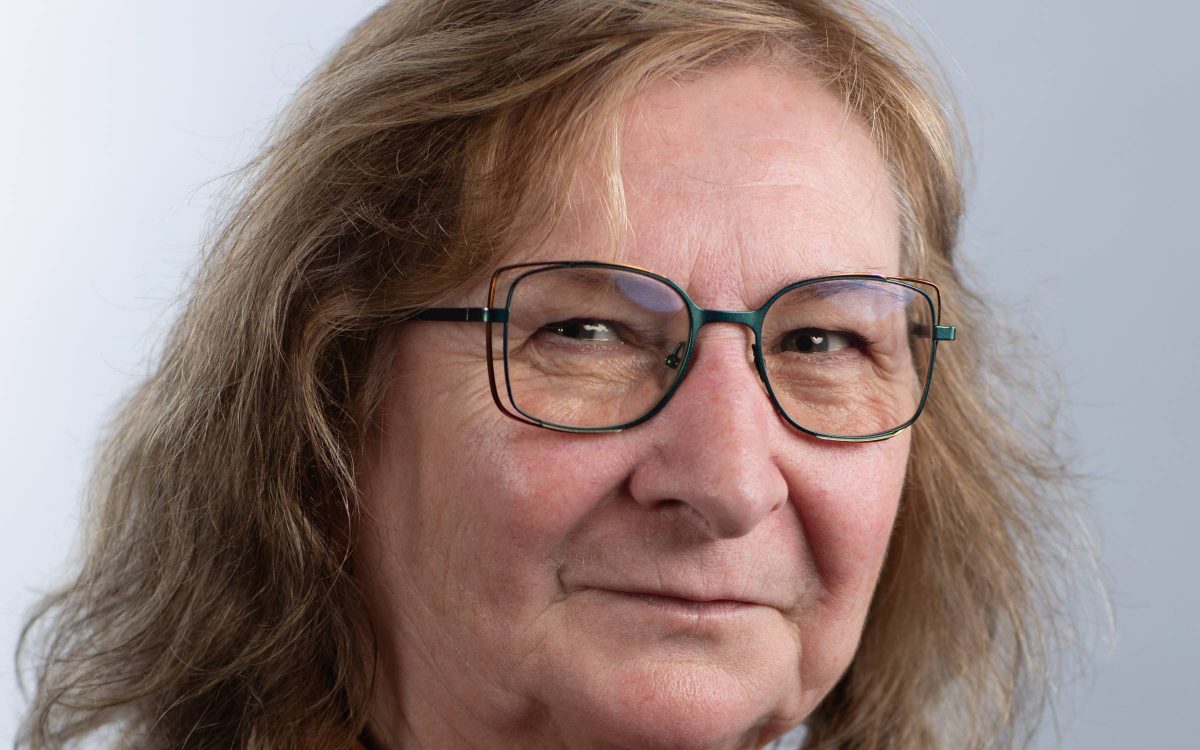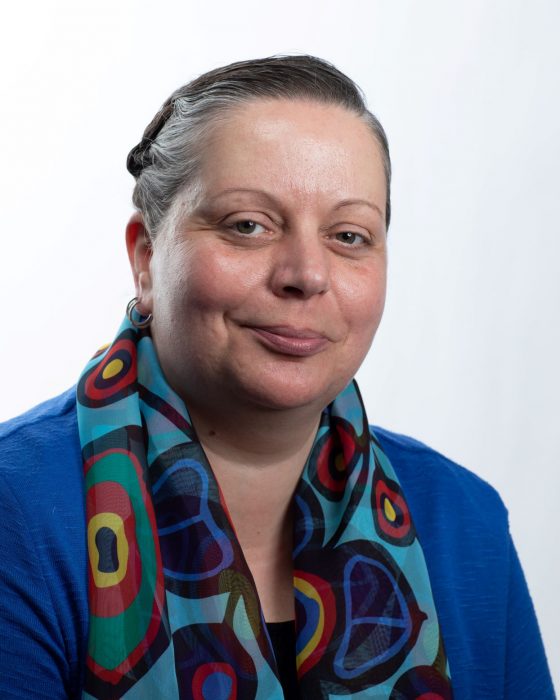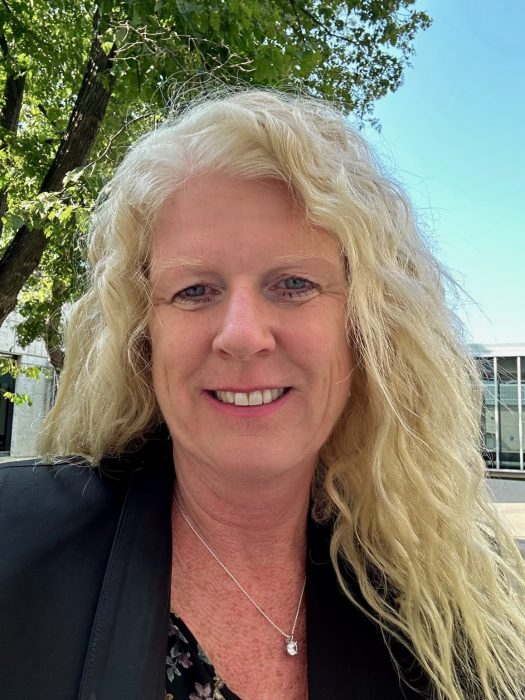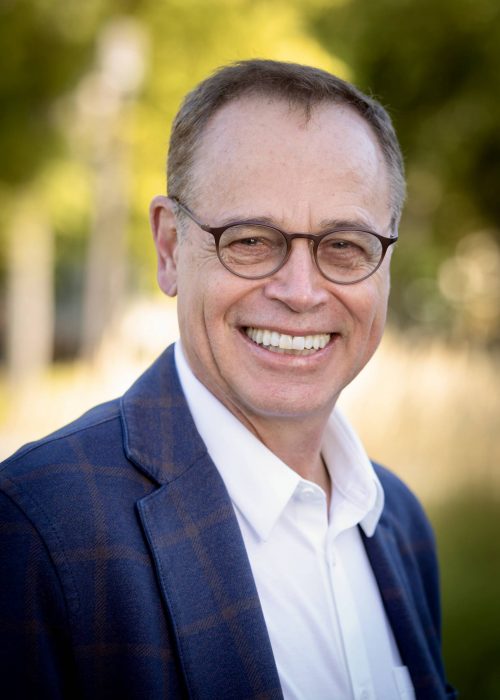
Marti Ford, instructor for the course
Access students invited to explore career in Education
New course shares passion and possibilities
Undergrads who want to make a difference in their community but haven’t quite figured out how should consider pursuing a degree in Education. Teaching is rewarding, in demand, and teachers make a difference.
“You should definitely consider going into education right now. There’s so much demand, and with a Bachelor of Education, you can really expand into different fields so you’re never bored,” says Jerilyn Ducharme, Access Program graduate and Indigenous educator working at Indigenous Engagement and Communications. She is Red River Métis.

Jerilyn Ducharme
Access Program students can explore a potential career with Introduction to Education: What Does It Mean to Teach? Offered by the Faculty of Education in partnership with the Access Program, this course can be used as a free elective towards a first degree.
Marti Ford, Associate Dean (Indigenous Education), Faculty of Education, and instructor for the course says, “If you are thinking about what you want to do with your career, consider teaching. You can go anywhere with it. I have had a very rewarding career, with so many opportunities and experiences that I would not have had otherwise,”
Instructor was an Access student
Ford, who is Inuit/Settler, was a single mom living in Churchill, Manitoba before she came to Winnipeg to attend the University of Manitoba with the Access Program. “It is because of Access that I have been able to succeed. Without it, I probably would have given up.”
With Access, she made lifelong friends and continued her education. During her career, she taught children, at-risk youth, and adults. She worked in Thompson, Manitoba, Botswana, at the Aboriginal Centre, Red River College, and in the Frontier School Division. She was a teacher, a principal, a director of education, a school superintendent, and a dean.
“I was planning on going into medicine. But I wanted time to focus on being a good mom. I wanted to help the Indigenous community. Education was the way to go.”
Now Ford is happy to give back, teaching this course for Access students. “I have lived and worked in their communities. I know what is needed. Education is such an important career. You can do so much with it. You can make changes in your own community. You can provide children with opportunities. If they have people to guide them, they can see what they can be, and they can do anything.”
What it really means to be a teacher
“Education is a passion for me. I want to show them what it really means to be a teacher,” says Ford.
Teaching is a really good way of life, says Jan Stewart, Dean, Faculty of Education. “Many undergraduates don’t know what they want to do. We want to open their minds to what this career can look like so they can consider this option.
“A teacher can be an advocate, a caregiver, a counsellor, and a role model. There is nothing more rewarding in a career than being privileged to serve in this position,” says Stewart, adding that graduates will also find many opportunities.
Shortage and opportunities
“We have a serious shortage of teachers in Manitoba as well as across many parts of the country. This is particularly critical for our Indigenous communities and rural areas of Manitoba,” she says. “Indigenous students need to see themselves better reflected in the schools that they attend and in the curriculum that they study. If we can encourage more Indigenous youth to be teachers, we will also be building the foundation for our next generation of educational leaders, policy makers and school administrators.”

Jan Stewart
The course was first developed to increase student diversity, says Wayne Serebrin, Associate Dean (Undergraduate Programs and Partnerships), Faculty of Education. It has been adapted to address the current teacher shortage and expanded to include not only the role of teachers in the Kindergarten to Grade 12 system but also a teacher’s contributions to the larger community and global citizenship.
Indigenous-led education and possibilities
“There is a huge shortage of Indigenous teachers. Every community would benefit. We want Indigenous-led education to come forward,” says Serebrin.

Wayne Serebrin
Education is the place to make something that matters happen, he says. “One of the beautiful things about education is its core in building relationships. It provides opportunities to create and reimagine possibilities. It is a place where dreams can come to life.”
With the next generation of young people so passionate about important topics like Reconciliation, climate change and more, education is a place to bring your passions and share them, says Serebrin.
“This is a place where we can deepen our understanding of what matters in society,” he says. “It is a place of hope and possibilities… I can’t imagine a better career. And it’s at a time when you can also get a job.”
Learn more about Introduction to Education: What Does It Mean to Teach?






